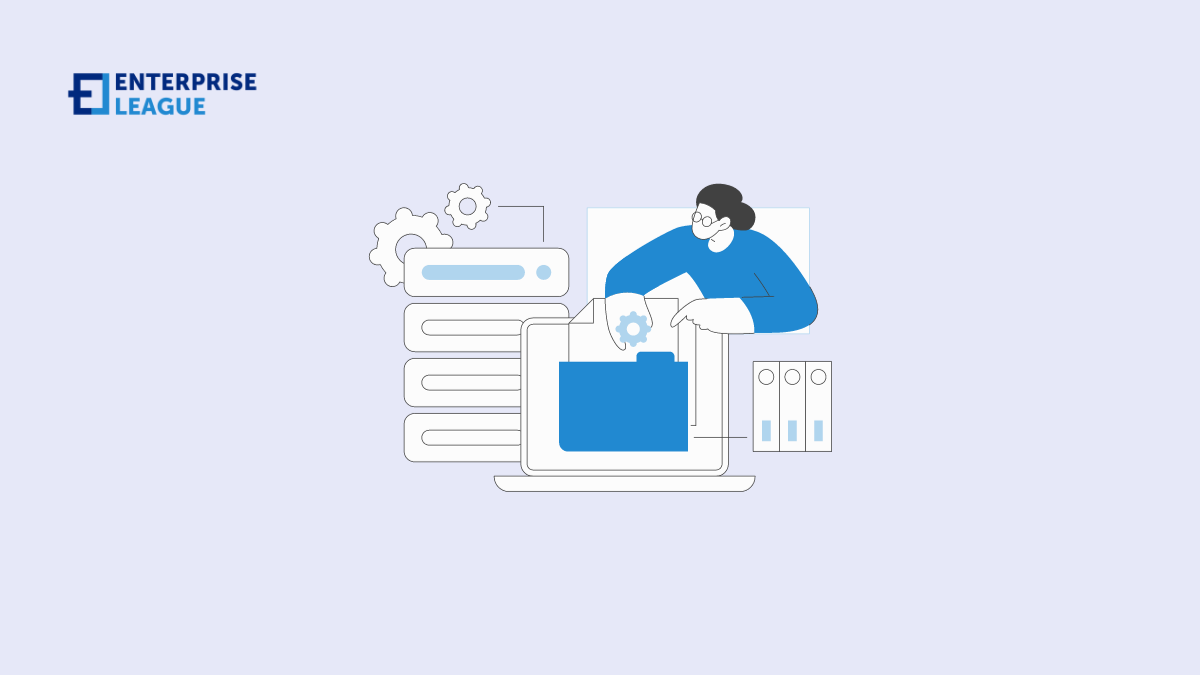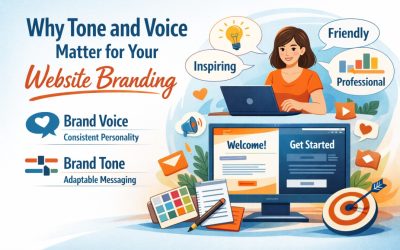Building a lead database isn’t just about gathering names and information. Your lead database is pivotal to your business growth as its main purpose is to help nurture relationships with potential customers.
Considering its importance, you can’t be careless about creating your own lead database. You must be careful about the quality of information, its source, and other factors. So, if you want to know how to design, build, and grow your lead database, we put together a brief primer to help you get started.
What’s a lead database
The term is quite self-explanatory – a database where you store all the important information on your leads. But there’s more to it than just a collection of data.
Each piece of data – be it an email address, phone number, or even job position, plays a role in understanding your leads better. Once you capture these details into systematic structures (such as customer profiles), they can help target specific audience segments with personalized marketing messages.
Additionally, your lead database isn’t just any static list lying around gathering dust. Oh no! It’s a dynamic gold mine that continuously updates as new prospects show interest or existing ones move further along your sales funnel.
How to create your business’s lead database
Your business’s lead database should help you start an engaging conversation with potential customers who might be interested in your products or services. The information contained in its grids must help you reach out ingeniously and engagingly so you can move interested parties further down your sales funnel.
Furthermore, effective lead generation, including mortgage broker lead generation, doesn’t just boost your chances of making a sale but builds strong customer relationships, too. Today’s buyers are well-informed, and their standards are quite high. So, in order to grab their attention, you need to have the right information.
Steps to follow
- Identify Your Target Leads: Identify your target audience by understanding their needs, preferences, and behavior.
- Collect Relevant Information: Gather as much data as possible about your potential leads. This includes anything from names and contact details to their interaction history with your company.
- Use Lead Generation Techniques: There are numerous ways to find the clues leading to potential customers. From online marketing tactics to traditional methods such as networking events – explore multiple channels and pick what works best for your industry.
- Organize Your Leads: Once you have collected the data, it’s time to organize them systematically. Segmenting your leads based on various factors like buying behavior or industry can greatly help personalize your outreach strategy.
Find the right data provider
However, when it comes to picking Lead411 over Seamless AI or other companies, there are a few criteria to keep in mind. Here are some of the most important ones:
- Quality Over Quantity: Don’t get swayed by platforms boasting thousands of leads if those leads aren’t relevant to your business. Prioritize providers with a proven track record in delivering high-quality, targeted leads.
- Data Accuracy: Consider providers that take steps to update their data and ensure its accuracy regularly. Accumulating outdated contact information may lead to wasted resources or, worse, damaged company reputation.
- Customization Capabilities: Look for platforms that allow customization of data based on factors like industry, job role, geographical location, etc.
- Cost-Effectiveness: While we all crave top-notch features and services, keep an eye on cost-effectiveness, too! Choose a provider offering valuable services at a reasonable price.
- Reputation: Research how other clients perceive your chosen provider’s service and support quality by viewing reviews and testimonials if possible.
- Compliance with Regulations: Your chosen data provider must adhere strictly to privacy laws like GDPR. It’s crucial that your provider of choice respects these regulations to avoid any potential damages or fines.
Use social media platforms for lead generation
It’s no secret that social media platforms are an overflowing treasure chest of potential leads waiting to be discovered. So, why not take advantage of these platforms where millions (or even billions) of users gather regularly?
You just need to know how to use each platform to your advantage. For instance, LinkedIn is a gold mine for B2B leads. You can use its advanced search features to pinpoint potential leads in your industry and join relevant groups to connect with your leads. Similarly, real estate agents and mortgage broker lead generation can benefit from leveraging Facebook groups dedicated to local communities or home buying and selling.
On the other hand, Facebook is an excellent platform for well-targeted ads and engagement via informative posts on your business page. The same is true about Instagram but for visual content. You can make use of visually appealing content like infographics or short explainer videos about your product or service to capture people’s attention.
On Twitter, you can use hashtags to engage with trending topics related to your industry. Even though the platform has gone through several transformations lately, it’s still a powerful medium, and you can gather user engagement with the right tweet.
Lastly, you can use Quora to position your business as an expert in your field by answering relevant questions posted on this site. Not only will this establish brand credibility, but it may also draw attention to potential leads hunting for solutions related to your industry.
Just keep in mind that you have to maintain a fine balance between promotion and providing value. These platforms are greatly appreciated by users for their social aspects, so your lead-generation strategy can quickly backfire if you only use them for ads and self-promotion.
Conclusion
Business growth requires work and dedication, but you can’t hope to see any tangible results without an accurate and up-to-date lead database. Also, don’t think that once you build your first lead database, you’re done with this process. You’ll have to constantly adapt, optimize, and adjust its data and structure to ensure its efficiency.
More must-read stories from Enterprise League:
- Key factors in determining salary increases for your employees.
- Find out all the things that make messy people smarter.
- Best marketing tools for startups that are worth trying.
- Importance of online privacy laws in the digital era and how they protect us.
- Profitable and funny business idea that you can start today.
Related Articles
Why Tone and Voice Matter for Your Website Branding
For digital marketers and website owners, success today means attracting the right audience and establishing a genuine connection through thought-out branding efforts. A website featuring eye-catching visual elements might create a glowing first impression, but...
What’s the Best Bulk Wheel Cleaner? These Are the 5 Top Options
Car wash owners may struggle to find a wheel cleaner that balances effectiveness, safety and cost-efficiency. Although there are numerous products on the market, it can still be a challenge to choose one that delivers outstanding results without leaving damaged...
What’s the Best Luxury Powerboat Company? Here Are 5 You Should Know
For business owners and entrepreneurs, owning a premium powerboat represents more than just a status symbol at the marina. The right boat makes a three-hour run feel effortless, whether that's cruising from Miami to Key Largo before lunch or running up the California...
Why Tone and Voice Matter for Your Website Branding
For digital marketers and website owners, success today means attracting the right audience and establishing a genuine connection through thought-out branding efforts. A website featuring eye-catching visual elements might create a glowing first impression, but...
What’s the Best Bulk Wheel Cleaner? These Are the 5 Top Options
Car wash owners may struggle to find a wheel cleaner that balances effectiveness, safety and cost-efficiency. Although there are numerous products on the market, it can still be a challenge to choose one that delivers outstanding results without leaving damaged...






